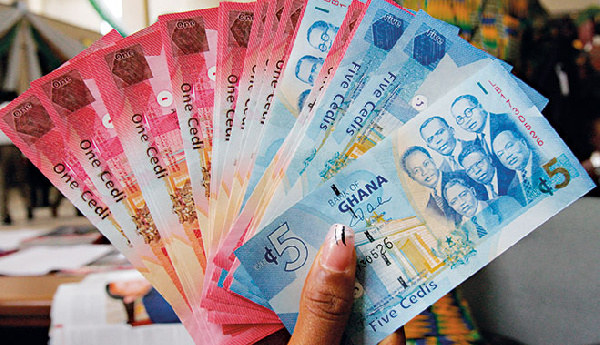President Nana Addo Dankwa Akufo-Addo of Ghana has outlined measures to halt the depreciation of the country’s currency, cedi.
Akufo-Addo announced these measures in a televised nationwide address, blaming the COVID-19 pandemic and the Russian-Ukrainian conflict for the country’s economic woes.
He also blamed currency speculators and unlicensed currency dealers dubbed as “black market operators” for the recent sharp fall in the value of the Ghana cedi.
Bank of Ghana’s latest official data, released in October, stated that the Ghana cedi had depreciated by 37.5 per cent between January and August this year.
“The government is working with the Bank of Ghana and the oil-producing and mining companies to introduce a new legal and regulatory framework to ensure that all foreign exchange earned from operations in Ghana are, initially, paid to banks domiciled in Ghana,” the president announced.
He said this action, when introduced, would make available foreign exchange and boost the domestic foreign exchange market.
He said the central bank had also enhanced its supervisory role by taking action to flush out illegal operators and ensuring that those permitted to operate legally abide by the market rules.
The president announced that some forex bureaus had had their licenses revoked.
“And this exercise will continue until we restore complete order in the sector.”
Turning to the systemic challenges that create difficulties in the forex market, Akufo-Addo said the government would introduce more stringent measures to discourage the importation of goods that could be produced locally.
“We will review the standards required for imports into the country, prioritise the imports and review the management of our foreign exchange reserves in relation to imports of products such as rice, poultry, vegetable oil, toothpicks, pasta, fruit juice, bottled water and ceramic tiles,” he stated.
With intensified government support and that of the banking sector, he said there was the capacity to manufacture and produce some of these products locally in sufficient quantities.
“In the interest of national security, we must urgently reduce our dependence on imported goods, and enhance our self-reliance,” Akufo-Addo said.
He added that he was confident that these immediate measures will go a long way to sanitise the foreign exchange market and make it more resilient against external vulnerabilities going forward.
